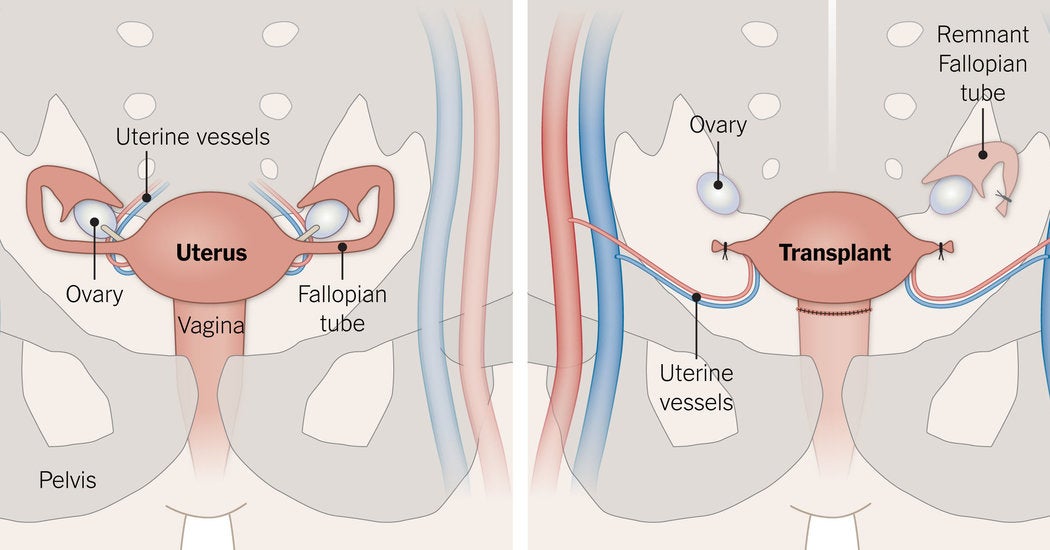Live Uterus Transplants: A Community Activist's Proposal For Transgender Women

Table of Contents
The Current Landscape of Reproductive Healthcare for Transgender Women
Transgender women currently face substantial hurdles in accessing reproductive healthcare. The lack of readily available and affordable options creates significant emotional distress and limits their reproductive autonomy. Many struggle to find healthcare providers who understand their unique needs and provide appropriate care. Existing options like IVF and surrogacy often come with prohibitive costs and logistical complexities, further exacerbating the challenges.
The emotional toll is substantial. The desire for biological motherhood is a powerful force for many transgender women, deeply connected to their sense of self and their journey of gender affirmation. The inability to pursue this path can lead to feelings of grief, loss, and inadequacy. Specific challenges faced by transgender women include:
- Lack of insurance coverage: Many insurance providers do not cover gender-affirming care, including fertility preservation and reproductive services.
- Discrimination and lack of understanding: Transgender women often encounter discrimination and a lack of understanding from healthcare professionals, leading to delayed or inadequate care.
- High cost of existing options: IVF, surrogacy, and even fertility preservation treatments can be extremely expensive, putting them out of reach for many.
- Limited availability of specialized services: Fertility preservation services tailored to the specific needs of transgender women are often scarce and under-resourced.
Live Uterus Transplants: A Potential Solution?
Live uterus transplantation offers a potentially transformative solution for transgender women seeking biological motherhood. This complex surgical procedure involves transplanting a uterus from a living donor into the recipient. While still in its relatively early stages, the success rates of uterus transplants in cisgender women are steadily improving, suggesting a potential for adaptation and application to the transgender population.
However, significant challenges and concerns remain:
- Surgical risks and complications: Uterus transplants are major surgeries with inherent risks, including infection, bleeding, and organ rejection.
- Immunological rejection: The recipient's body may reject the transplanted uterus, necessitating lifelong immunosuppressant medication.
- Long-term health implications: The long-term health consequences of uterus transplantation are still being studied.
- Ethical considerations surrounding organ donation: The ethical implications of live organ donation must be carefully addressed, ensuring informed consent and equitable access.
Despite these challenges, the potential advantages are considerable:
- Opportunity for biological motherhood: Live uterus transplants offer transgender women the chance to experience pregnancy and childbirth.
- Improved gender affirmation and psychological well-being: The ability to carry a child can significantly enhance gender affirmation and overall psychological well-being.
- Reduced reliance on surrogacy: This procedure may reduce reliance on surrogacy, which can be expensive and emotionally complex.
Ethical Considerations and Community Engagement
The ethical implications of live uterus transplants are profound and require careful consideration. Central to this discussion are issues of donor selection, ensuring fully informed consent from both donor and recipient, and mitigating potential long-term consequences for both individuals. Equitable access for all transgender women, regardless of socioeconomic status or geographic location, is paramount. The potential for exploitation of donors must be vigilantly guarded against.
Open dialogue and community engagement are vital. Collaboration between transgender women, medical professionals, ethicists, and policymakers is essential to establish ethical guidelines and ensure responsible implementation. Community-based advocacy groups can play a crucial role in:
- Promoting awareness and education.
- Developing ethical frameworks.
- Advocating for equitable access.
- Providing support and resources to recipients and donors.
Key ethical concerns include:
- Informed consent: Ensuring both donor and recipient fully understand the risks and benefits.
- Equity and access: Guaranteeing that access to this technology is not limited by socioeconomic factors.
- Potential exploitation of donors: Protecting donors from coercion or undue pressure.
- Long-term follow-up and support: Providing comprehensive long-term care and support for both recipients and donors.
Advocacy and Future Directions for Live Uterus Transplants
Community activists have a vital role in advocating for research and development in live uterus transplantation for transgender women. This advocacy must encompass various strategies, including:
- Lobbying policymakers: Advocating for policy changes that support research, funding, and access.
- Raising public awareness: Educating the public about the procedure and its potential benefits.
- Partnering with medical institutions: Collaborating with researchers and healthcare providers to advance the field.
- Building alliances: Working with other advocacy groups to amplify the message and expand reach.
Potential advocacy strategies include:
- Fundraising for research: Securing funding for crucial research projects.
- Lobbying for policy changes: Advocating for legislation that ensures equitable access.
- Educating the public and healthcare professionals: Raising awareness and improving understanding.
- Building alliances with other advocacy groups: Collaborating to expand impact and reach.
Conclusion: Realizing the Promise of Live Uterus Transplants for Transgender Women
Live uterus transplants represent a potentially groundbreaking advancement in gender-affirming care for transgender women. While significant challenges remain, including ethical considerations and the need for further research, the potential benefits are substantial. The opportunity for biological motherhood offers a powerful pathway to improved gender affirmation and psychological well-being. Ongoing research, thoughtful ethical considerations, and robust community engagement are critical to realizing the promise of this technology. Learn more about live uterus transplants and how you can support this groundbreaking research to help transgender women achieve their dreams of biological motherhood. Engage with organizations working to improve access to gender-affirming care and advocate for policies that prioritize the reproductive rights of transgender women.

Featured Posts
-
 Wynne Evans Responds To Accusations A Declaration Of Innocence
May 10, 2025
Wynne Evans Responds To Accusations A Declaration Of Innocence
May 10, 2025 -
 Difficultes D Epicure La Cite De La Gastronomie De Dijon Et Ses Implications
May 10, 2025
Difficultes D Epicure La Cite De La Gastronomie De Dijon Et Ses Implications
May 10, 2025 -
 The 10 Best Film Noir Movies You Need To See
May 10, 2025
The 10 Best Film Noir Movies You Need To See
May 10, 2025 -
 Elizabeth City Road Two Killed In Hit And Run Police Seek Information
May 10, 2025
Elizabeth City Road Two Killed In Hit And Run Police Seek Information
May 10, 2025 -
 Vegas Advances To Playoffs Despite 3 2 Loss To Edmonton Oilers
May 10, 2025
Vegas Advances To Playoffs Despite 3 2 Loss To Edmonton Oilers
May 10, 2025
